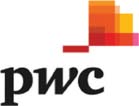An important reminder that subsidy income does not automatically restrict input VAT recovery

Whilst the recent First Tier Tribunal (“FTT”) case of Newell1 does not create a precedent for others, it does serve as an important reminder for those receiving subsidy income in ascertaining the correct VAT position in terms of the recovery of VAT incurred. Contrary to some thoughts, and as confirmed by this case, the receipt of outside the scope income does not necessarily restrict a taxpayer’s ability to recover input VAT.
Background
The Appellant received periodical support payments (“PSPs”) under the Renewable Heat Incentive scheme for Northern Ireland (“the RHI scheme”). It was not in dispute that the PSPs are outside the scope of VAT.
The Appellant made fully taxable supplies (sales of the dried materials, and charges made to third parties for drying their materials) and therefore recovered input VAT in full. However, HMRC considered that the Appellant was not entitled to recover the proportion of his input VAT on expenditure related to the receipt of PSPs. It considered that the expenditure was a cost component of the generation of a mixture of taxable and outside the scope income, and input tax is only recoverable to the extent that it is used or to be used in the making of taxable supplies. HMRC, therefore, assessed the Appellant for the proportion of its input VAT that HMRC considered to be incurred in generating the PSP income.
Judgment
As this was a Northern Irish case, the FTT (post Brexit) was entitled to take that into account EU legislation and case law in accordance with the Northern Ireland Protocol.
The question for the FTT was whether there was a direct and immediate link between the VAT-bearing purchases made by the Appellant and the receipt of the PSPs.
It was acknowledged by the Appellant that if he had not incurred the overheads and bought the logs for burning, then he would not have been able to claim the PSPs as he would not have been generating heat. But the FTT cited the well-known case of Southern Primary Housing Ltd2 as authority that a direct and immediate link is not created between expenditure and a subsequent supply which could not have taken place “but for” the prior supply to which the expenditure did have a direct and immediate link. As such, the Appellant’s expenditure did not have a direct and immediate link to the PSPs simply because the PSPs would not have been received “but for” the taxable activity of heating the materials.
The FTT therefore concluded that there was a direct and immediate link between the Appellant’s expenditure and his taxable supplies, as the goods and services on which input tax was incurred were used to generate heat and make taxable supplies. This established the entitlement to recover the Appellant’s input tax under Article 168 of the Principal VAT Directive3. The FTT did not consider the fact that the Appellant was also able to qualify for PSPs under the RHI scheme to detract from this conclusion or mean that there was a direct and immediate link between the purchases and the receipt of the outside the scope PSP income.
The FTT also considered it to be irrelevant, as HMRC had suggested, that the Appellant’s business would not have been viable without the PSP income. The viability or otherwise of a business was not relevant to the entitlement to deduct input tax, as the ECJ had held in Commission v. French Republic (C-50/87).
The FTT therefore concluded that the Appellant was entitled to recover all of the input tax in dispute and the appeal was allowed.
Consequences for others?
The FTT in this case highlights an important point concerning the distinction between an outside the scope activity and the receipt of outside the scope income. Where there is an outside the scope activity, there can be a direct and immediate link between the costs incurred by the business and that activity. Where the outside the scope activity consumes VAT-bearing expenditure, a restriction of input tax may be appropriate.
The FTT contrasts this with the situation, as in this case, where outside the scope income is received, but there is no direct and immediate link between the business’s expenditure and that income.
In light of this reminder of basic VAT principles, those receiving subsidy income should review their VAT position (noting the distinction drawn in this case between activity and receipt of income) to ensure compliance, but also to maximise VAT recovery where possible.
Michael McNeill is Indirect Tax Senior Manager at PwC Belfast

